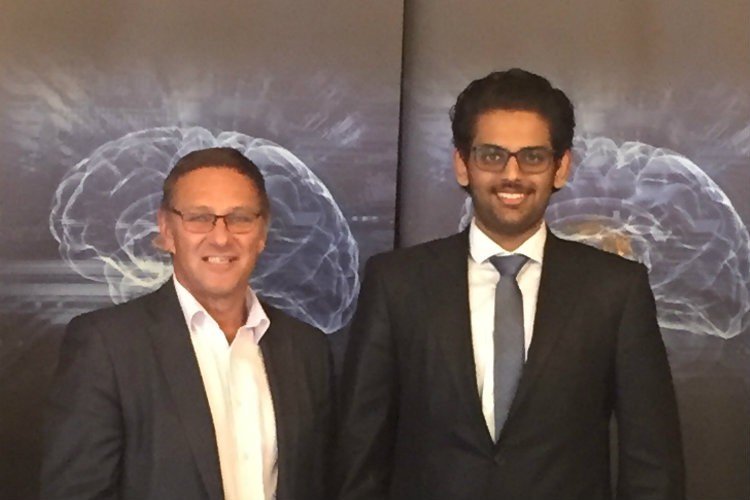Fake News has been causing a lot of destruction worldwide. From spreading fake forwards about lynching to spreading political rumours, WhatsApp and Facebook have been playing a prime factor in increasing fake news related crisis. Both the government and the Supreme Court of India have raised serious concerns about fake news disrupting national peace. Amidst all these chaos, 21- year -old Indian origin entrepreneur Lyric Jain has founded a startup called ‘Logically’ in the UK and developed a machine -learning algorithm to fight against widespread of fake news. The company also has a set of plans for India. The platform collects stories from over 70,000 domains and determines the authenticity of the claims in the articles.

As the country is facing major problems with the widespread of fake news, which is triggering a lot of mob lynching and communal riots in the rural parts of the country. Very recently, the Geetanjali MD Mehul Choksi, who’s one of the main accused in the Nirav Modi Diamond scam, also expressed fear of Lynching. “A group of people punishing the accused on the street is rapidly becoming a threat”, Choksi had been quoted saying. In such situations, he has serious concerns about lynching from the debtors and the staff whose salaries haven’t been paid off. As per a research carried out, the spread of fake news has been believed to have been seasonal and incidental. For example, every year post exams, a message is circulated on WhatsApp declaring a scholarship by the government on the name of Dr. APJ Abdul Kalam. The message has been going viral for the last 2 years. There are various other examples of how fake messages appear on WhatsApp and Facebook seasonally. Various news channels and news portals have been conducting awareness programs about how to spot fake news.
The startup is scheduled to launch in the country, in the month of October. Since then, the government along with some private authorities has been working on setting regulations on social media platforms like Facebook and WhatsApp. Very recently WhatsApp even released a full-page guideline on how to deal with fake forwards.
“Logically gathers a wide range of news stories and determines the credibility of the claims across each article. It does this by using a machine learning algorithm that is designed to detect logical fallacy, political bias, and incorrect statistics. By illuminating the quality of information across these articles, Logically provides users with a transparent and insightful view that allows them to determine how trustworthy the news they read really is,” the Logically founder told Youth Incorporated exclusively when asked about the detailing of how the software plans on tackling the fake news crisis.
Witnessing the breakdown in civic and political discourse during both the Brexit debate in the UK and the 2016 presidential election in the US is how Logically came about, Jain explains. It was clear that the public both needed and wanted access to credible information they could reliably use to inform their decisions. Social media firms and media institutions both struggled to address the spread of misinformation, which led to the warping of public opinion by various entities. Fake news was clearly affecting the democratic process in a negative and substantial way.
Conducting preliminary market research whilst studying at MIT demonstrated to Jain there was both a need and a market for a solution to this problem. As a result, his first course of action was designing a machine-learning algorithm that Logically now uses to detect logical fallacy, inaccuracies and bias.
But the challenge lay in making Logically user-friendly. “The Logically app gathers the biggest news stories and highlights the features that make news fake news – like headline-article dissonance, logical fallacy, political bias, and inaccurate statistics – all using a machine learning algorithm. The algorithm uses three main areas to determine the credibility of information shown to users. These are metadata – the quality of the source the information comes from, the content itself – if it contains inaccurate or misleading claims, and social network behaviour – how the story proliferates and spreads. By illuminating the quality of information across articles, Logically provides users with a transparent and insightful view that allows them to determine how trustworthy the news they read really is”, said Jain
As for their future plans, the company’s sole focus is currently focusing on news media and the credibility of its reporting.




































[…] PHOTO: Fake news, not just a phenomenon, a business. (https://www.youthincmag.com/fake-news-crisis-21-year-old-to-develop-ml-algorithm) […]